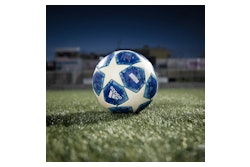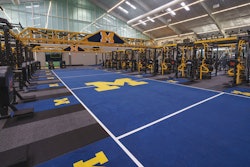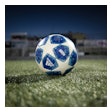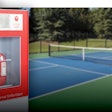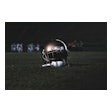A proposal to ban high school football in Dover, N.H., a small city in the state's southeastern corner, has taken the community - including Dover High School athletic director Peter Wotton - by surprise. "I sure would like to believe [football will survive]," he told Foster's Daily Democrat. "Just the idea of what football is - it's an event. It entails the band, the cheerleaders, the community. That's what makes football so different from the other sports. Good and bad."
The bad is what first-year board member and retired physician Paul Butler focused on when he suggested at Monday night's school board meeting that the city's schools drop football because of the long-term effects of concussions. According to the paper, Butler told his fellow board members that it is the duty of the "governors of the school district" to end the game of football altogether before lawsuits and lawyers require the district to do so. He cited lawsuits filed by former NFL players affected by concussions and brain injuries accusing the NFL of hiding information linking football-related head trauma to permanent brain damage. "I think it's the moral thing to do, the ethical thing to do to try to stop football at Dover High School and throughout Dover," Butler told Daily Democrat reporter John Doyle.
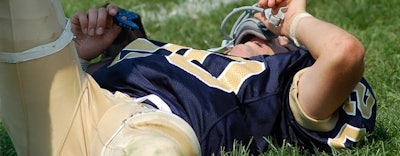 100312_concussions.jpg
100312_concussions.jpg
The topic was not discussed further at the meeting, but Butler - who played football in high school and college - told NBC affiliate WHDH that he's ready for a fight. "I'll do my best to try to convince the other members of the school board that it's a dangerous game and that we should abandon it," he said. "Football, unlike hockey, unlike lacrosse - both of which are violent games - is the one where the head gets repeatedly banged. ⦠I think it's bad to take this away, I certainly do. But it's worse to let it continue."
Butler may want to check his sources. Two years ago, a group of more than 250 doctors, researchers and officials called on hockey organizations - from youth groups on up to the NHL - to ban hits to the head. They cited one astonishing statistic that indicated 700 concussions are reported each year among the 9,000 11- and 12-year-olds playing youth hockey in Alberta, Canada.
Dover School Board member Rocky D'Andrea, who also is a local youth baseball coach, said he doesn't think Butler's proposal will gain much traction. "I'm not supportive of it," he said, adding that there are ways to deal with the serious issues of concussions in sports other than dropping a sport entirely. "Concussions happen in every sport," D'Andrea said. "I know it's an issue, and I'm not trying to belittle it. But getting rid of a sport? If you get rid of football, you might as well get rid of all sports."
A new state law in New Hampshire, passed over the summer, mandates that coaches and other athletic officials immediately pull from the game any athlete they suspect of having sustained a concussion. A written authorization from a health care provider and parent is required before that athlete may return to play.
For years, the National Federation of State High School Associations has made "The Case for High School Activities" in an eight-page document that cites - among other things - a report suggesting that students who participate in "more vigorous sports like soccer or football" perform approximately 10 percent better in math, science, English and social studies classes than students who don't play those sports.














